LGBTQ-Friendly Japan: Travel And Entertainment, Events, And Support

In general, Japan is a safe and fun country for all, regardless of orientations and identities. This article covers LGBTQ-friendly spots and events where all can feel like they can be themselves, from entertainment districts like Ni-Chome, to hotels and cafes, to the Tokyo Rainbow Pride Week.
A Guide to Japan's LGBTQ-Friendly Places and Events
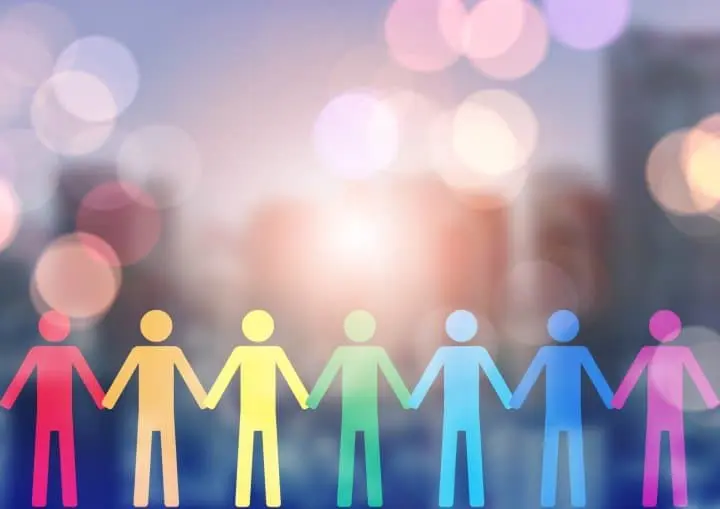
How LGBTQ friendly is Japan?
In recent years, there has been policy progress made for LGBTQ rights, with several municipalities and local governments in Japan allowing same-sex partnerships. Events, such as Rainbow Pride Week, and neighborhoods, like Shinjuku's Ni-Chome area, are famous throughout Japan and the world. Japan is, in general, a safe place to be regardless of identity, preferences, and orientation.
On the other hand, significant work remains in Japan for it to be considered an open society. This article outlines laws and social attitudes surrounding LGBTQ rights, where to go for those traveling or seeking entertainment, major events, and where to get support when needed.
*In this article, LGBTQ is defined as lesbian, gay, bisexual, transgender, and queer and/or questioning. However, anyone who identifies as anything outside of these terms is included, too, and encouraged to read this article.
Table of Contents
- - Introduction to LGBTQ Policies in Japan
- - Ni-Chome and Doyamacho: Famous LGBTQ-Friendly Areas
- - LGBTQ-Friendly Hotels Cafes, and Sightseeing
- - LGBTQ Events in Japan
- - Where to Get LGBTQ Support Japan
An Introduction to LGBTQ Policies in Japan

Photo by Pixta
Policy in Japan surrounding the rights of LGBTQ citizens is slowly changing. Still, as of July 2020, there are very few protective laws in place for people of non-straight orientations or binary gender identities.
As mentioned above, same-sex partnerships are allowed in Japan, depending on the municipality. As of January 2020, 34 local governments,* including Shibuya, Setagaya, Toshima, and Edogawa wards in Japan, along with other local governments throughout the country, permit same-sex partnerships. However, the legal rights granted are only guaranteed within the regions that recognize it, and the partnership is much different than marriage. Same-sex marriage is not legally recognized in any place in Japan for people of non-straight identification or sexuality.
Other laws and protection for LGBTQ people are not guaranteed on a national level, and in general, Japan is thought to be a very challenging place to come out. For travelers, this may mean taking time to search for LGBTQ-friendly destinations and lodgings for a more comfortable trip.
On the other hand, in 2020, a Tokyo version of "Queer Eye" premiered on Netflix, suggesting a society open to minorities. Celebrities and leaders in Japan advocate for equality and acceptance, such as Kodo Nishimura, an internationally-known gay monk and makeup artist, and Taiga Ishikawa and Kanako Otsuji, openly-gay members of Japan's National Diet.
For more information on other laws and initiatives in Japan, refer to the support section of this article to find out more about the organizations and movements that are taking place.
*Source: Asahi Shimbun's Same-Sex Partnerships and its Hardships for Couples (Japanese)
Shinjuku Ni-Chome in Tokyo

The Shinjuku Station area pictured above is close to Ni-Chome. Photo by Pixta
One of Japan's most famous and most lively LGBTQ friendly areas is Ni-Chome in Shinjuku, Tokyo. Known for its vibrant nightlife with bars, clubs, restaurants, and other entertainment, this neighborhood is worth visiting at least once for an unforgettable night of fun. It is within walking distance of JR Shinjuku Station and even closer to Shinjuku Sanchome Station on the Tokyo Metro.
Gay bars, lesbian bars, and other dining options are abundant, making this a neighborhood excellent for enjoying with a partner or group of friends. Some of the most famous places include gay clubs like Arty Farty and Dragon Men, where you will work up a sweat on the dancefloor.
For a more relaxed vibe with less dancing, try Bar Gold Finger or Adezakura, two lesbian bars. Please note that these facilities have rules and admit different groups depending on the day and time, so be sure to check in advance and be respectful.
Doyamacho in Osaka

An aerial view of the Osaka area close to Doyamacho. Photo by Pixta
Doyamacho is a famous LGBTQ-friendly entertainment district to visit in Osaka. Located within walking distance of Osaka and Umeda stations, this energetic neighborhood is similar to Ni-Chome with its bars, clubs, izakaya, and karaoke. Drag shows and special events regularly occur, too, making it a great spot to visit with friends for an energetic night out.
Recommended spots include FrenZ FrenZy, a popular gay bar famous for being visited by international celebrities, like Lady GaGa and Adam Lambert. To enjoy a more relaxed atmosphere, try WaaGwaan, a small LGBT-friendly bar serving vegan side dishes and delicious cocktails. Be sure to take in a show and entertainment at VILLAGE, a long-standing gay bar. For a late-night drink, try G Physique, a gay bar known for being very accommodating to international visitors.
As in Ni-Chome, however, bars and clubs can be exclusive here, so be respectful and courteous when visiting. Some establishments may only permit certain groups to enter depending on the time of night and the day of the week. If possible, go with a friend who is familiar with the area for your first time.
LGBTQ-Friendly Hotels, Cafes, and Sightseeing Spots
While Shinjuku Ni-Chome and Osaka's Doyamacho are the best-known areas in Japan for being LGBTQ-friendly, there are also many other places welcoming to all groups of people. The spots listed below are a portion of those open to diverse groups.
Suggested Hotels

Picture from 【新宿】紐約風格的「CEN DIVERSITY HOTEL & CAFÉ」為日本畫下第一道彩虹 (original article in Traditional Chinese)
Pictured above is CEN DIVERSITY HOTEL & CAFE, a lodging in Shinjuku that openly accepts and accommodates guests regardless of their identity and preferences. Those staying here will feel comfortable to be themselves, with the progressive, open amenities and facilities, like inclusive, all-gender restrooms and employees educated in LGBTQ and diverse needs.
For another option, the Keio Plaza Hotel (also in Shinjuku) has openly LGBTQ-friendly policies and has arranged tours of the nearby Ni-Chome area in the past for its guests.
Tokyo Cafes
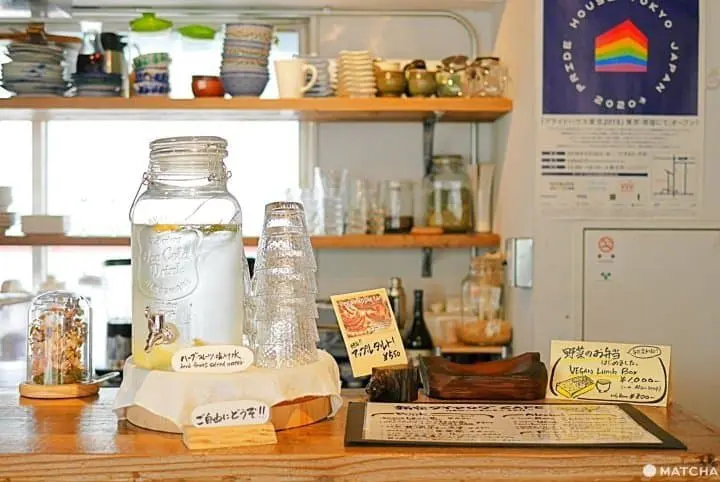
Picture from Shinjuku Dialogue: A Sustainable Vegan-Friendly Cafe For All
There are several openly LGBT-friendly restaurants and bars in Tokyo offering a relaxed atmosphere enjoyable during the day. Near Shinjuku Gyoen is Shinjuku Dialogue (above), a cafe serving vegan food that allows diners to donate to one of Japan's Sustainable Development Goals when they make their food and drink purchases. At night, the cafe turns into a bar.
In Asakusa, try visiting PQs Cafe for pink, blue, and other colorful vegan curries. The chefs and owner are very welcoming to all guests, and the cafe openly conveys itself as a safe space for all.
Read also
Shozenji Temple, Osaka
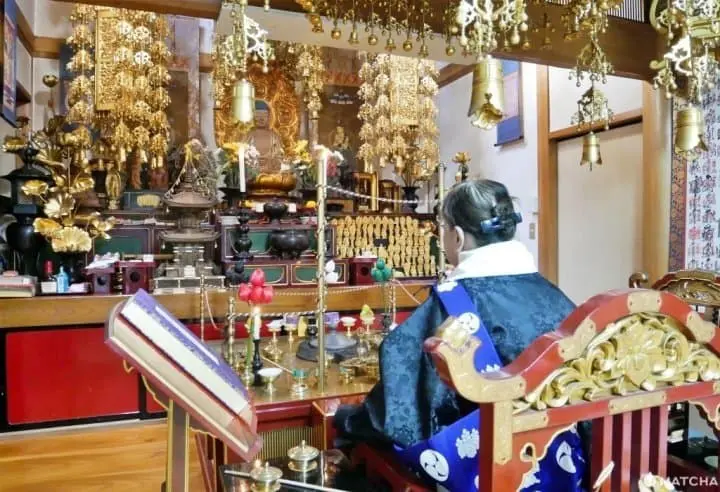
Picture from Shozenji, An LGBT-Friendly Temple Run By A Transgender Monk
For sightseeing and points of interest, Shozenji in Moriguchi City, northeast of central Osaka, is an LGBTQ-friendly Buddhist temple run by a female monk who underwent gender transformation surgery. The temple is openly supportive and welcoming to guests of all identities.
LGBTQ Events in Japan

Tokyo Rainbow Pride Parade in 2019. Picture courtesy of Tokyo Rainbow Pride
LGBTQ-friendly events run by non-governmental organizations occur throughout Japan year-round. The first pride parade in Tokyo was held in 1994, and since then, events for the public have been increasing.
Perhaps the most famous, however, is Tokyo Rainbow Pride Week, which includes a parade through Shibuya and Harajuku, a festival and performances at Yoyogi Park, and other events. Running officially for one week through late April and early May, the events attracted over 200,000 participants and visitors in 2019 (it occurred online in 2020).

Tokyo Rainbow Pride Week in 2019. Picture courtesy of Tokyo Rainbow Pride
Tokyo Rainbow Pride Week is an inclusive event, where all participants, whether they identify with LGBTQ or as something else, are encouraged to celebrate and feel pride about who they are. For those in the Tokyo area during this time of the year, this event is a must-visit and will put a smile on your face with all the colors and energy.
The Rainbow Festa (Japanese) events held annually in Osaka celebrate people of all identities in Western Japan. In 2019, around 20,000 participants attended the parade and other events, making this a smaller but just as spirited celebration. In 2020, the festivities are scheduled for October 10 and 11 (dates are subject to change).
LGBTQ Support in Japan
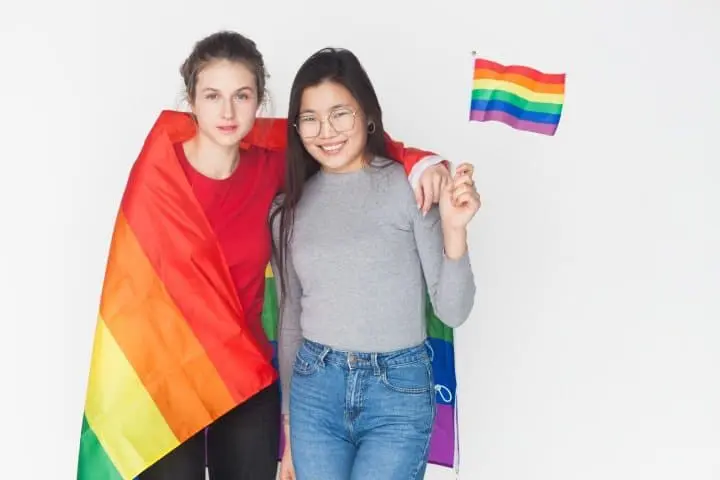
For those in Tokyo, Community Center Akta, an informational and safe space for the LGBTQ community, is the place to visit for support. The center offers information on HIV/AIDS testing in Japan, counseling, LGBTQ-friendly businesses, and other services, such as condom delivery. The center is friendly to all, so feel free to visit to gather information or relax. Please note that English support may be limited.
For LGBTQ support outside of Tokyo, Stonewall Japan has several groups throughout the country to assist the international communities in Japan. Stonewall Japan has active groups on Facebook, holds events regularly, and has helpful online resources on its official website.
LGBTQ and Japan
The information mentioned in this article represents the spirit and hope in Japan for a more accepting society, and are a fraction of the numerous LGBTQ-friendly initiatives, groups, and places. Japan is not known for its openness and inclusion of diverse groups--including those of non-straight or non-binary orientation and identity.
However, this should not get in the way of travel, going out, and experiencing life to its fullest, and Japan's policies, society, and conditions are slowly changing.
Born in 1959. Currently working as a freelance translator, after 21 years in various companies.





















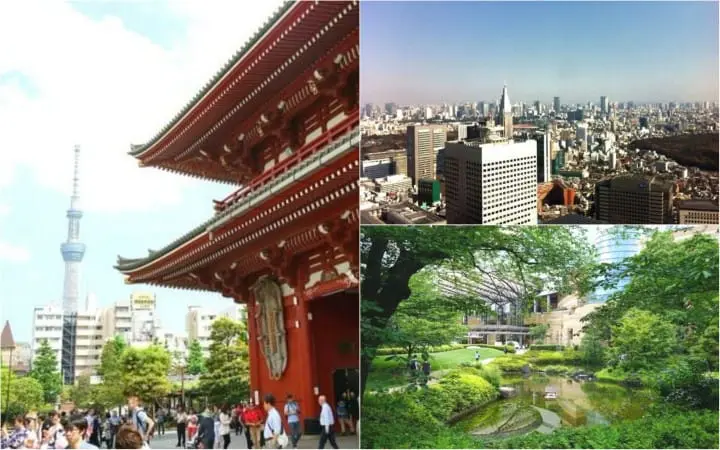


























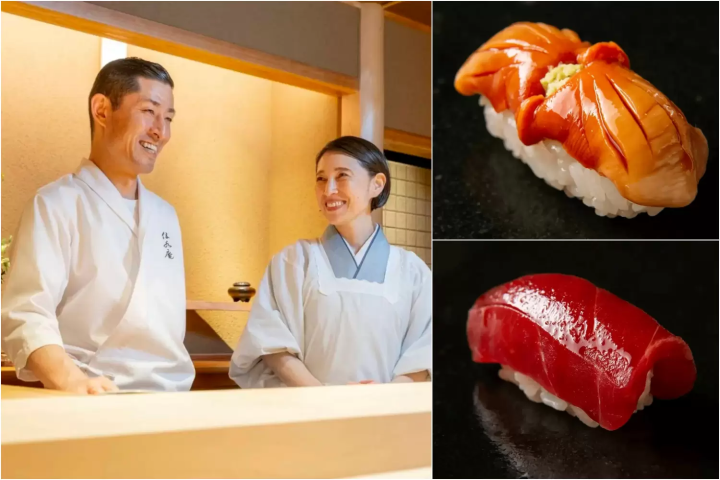
![[No need to worry!] A guide to buying entertainment tickets in Japan](https://resources.matcha-jp.com/resize/720x2000/2025/04/21-231654.webp)
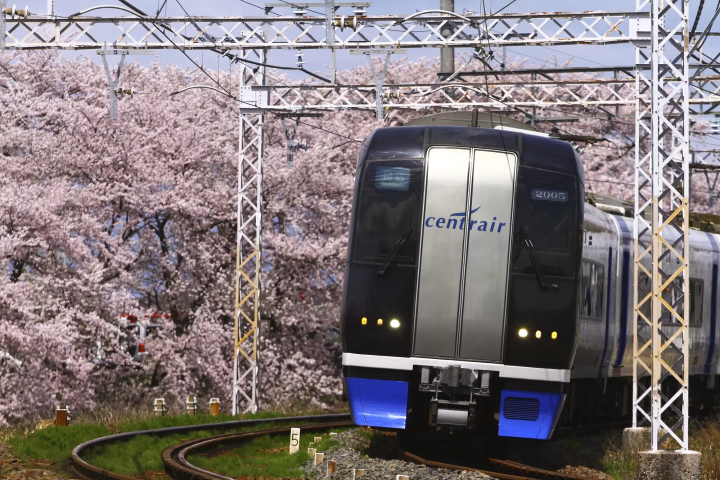
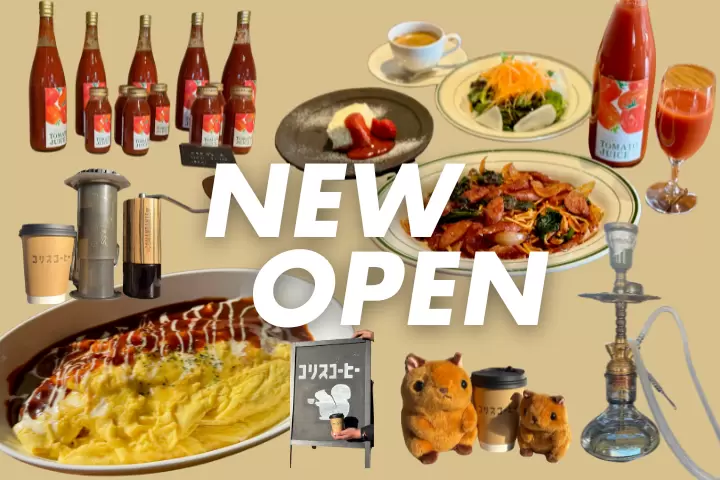
![[ Naruto City, Tokushima Prefecture ] Experience the world's largest whirlpools up close on a sightseeing boat at the Spring Whirlpool Festival!](https://resources.matcha-jp.com/resize/720x2000/2025/02/05-222727.webp)